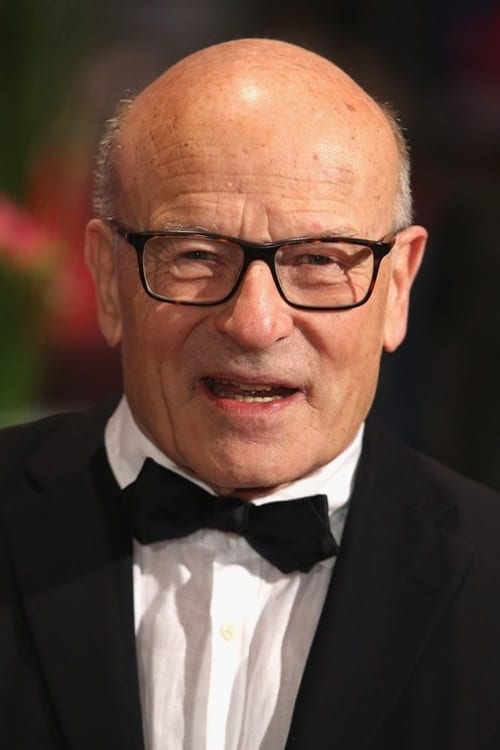
Self
Driven by extensive archive material and interviews with those who know her, this is the astonishing story of how a triple outsider – a woman, a scientist, and an East German – became the de facto leader of the “Free World”, told for the first time for an international audience.
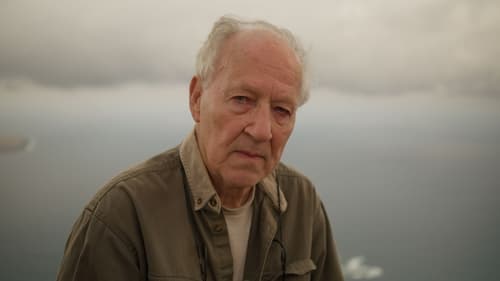
Self
“Nothing is typical for Werner, only the atypical is typical for him.” This is just one of many attempts to characterize Werner Herzog. Documentary filmmaker Thomas von Steinaecker spoke to actors, directors, directors of photography and producers who have worked with Herzog over his long career—including directors Chloé Zhao, Joshua Oppenheimer and Wim Wenders, singer Patti Smith and actors Nicole Kidman, Christian Bale and Robert Pattinson. We also hear from Herzog himself, with extraordinary anecdotes about film locations and shoots, his admiration for Lotte Eisner, and his eternal search for beauty. The interviews are carefully punctuated by archive footage of Herzog never seen before, iconic excerpts from his feature films and documentaries, and his cameos in cartoon series such as The Simpsons. Together they create a kaleidoscopic image of a radical visionary and dreamer, and of his very own “Werner World.”
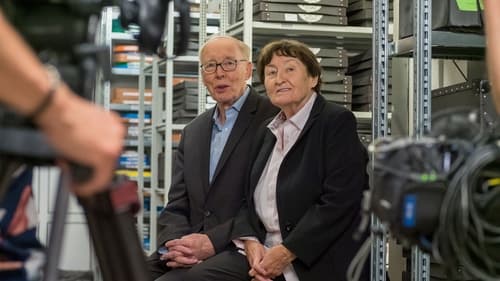
Volker Schlöndorff
From the 1950s onwards, Erika and Ulrich Gregor brought countless film historical milestones to Berlin and shaped cinema discourse in post-war Germany. A look at the life and work of the couple without whom Arsenal and the Forum wouldn’t exist.

Writer
Together with African small farmholders Tony Rinaudo, an Australian agronomist, has been fighting against the spread of the desert for 30 years and challenges ideas of conventional reforestation with his simple yet effective method.

Producer
Together with African small farmholders Tony Rinaudo, an Australian agronomist, has been fighting against the spread of the desert for 30 years and challenges ideas of conventional reforestation with his simple yet effective method.

Director
Together with African small farmholders Tony Rinaudo, an Australian agronomist, has been fighting against the spread of the desert for 30 years and challenges ideas of conventional reforestation with his simple yet effective method.

Self
Born in Berlin in 1896, Lotte Eisner became famous for her passionate involvement in the world of both German and French cinema. In 1936, together with Henri Langlois, she founded the Cinémathèque Française with the goal of saving from destruction films, costumes, sets, posters, and other treasures of the 7th Art. A Jew exiled in Paris, she became a pillar of the capital's cultural scene, where she promoted German cinema.
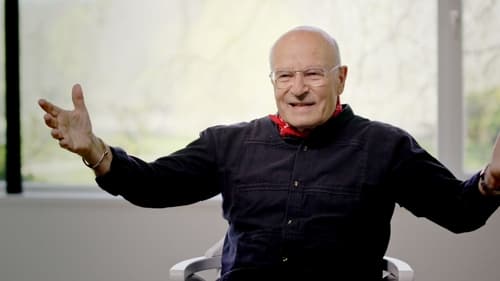
Self - Filmmaker
The life and work of the brilliant German filmmaker Volker Schlöndorff, a cross-border artist who, by leaving Germany and making the whole world his place of work, acquired the objective perspective necessary to portray his country's society better than anyone else while providing a unique and original point of view on the troubled history of the European continent.

Self - Narrator (voice)
Near Munich, in Bavaria, Germany, is the Schleißheim Palace, where French filmmaker Alain Resnais shot his film Last Year at Marienbad in 1960. Nearby is the Dachau concentration camp, where thousands of people were killed between 1933 and 1945. An essay about the present and the past, beauty and horror, life and death.

Self
Like nobody else Jean-Pierre Melville influenced modern filmmaking. This documentary follows his creative process step by step, showing him becoming the father of the Nouvelle Vague and one of the most iconic directors of French cinema.
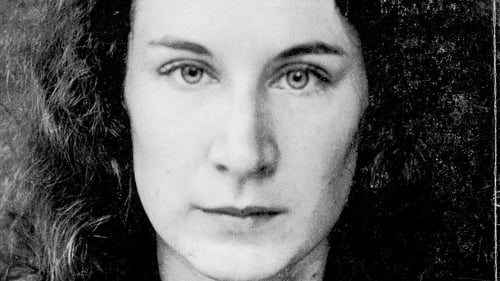
Self - Filmmaker
The views and thoughts of Canadian writer Margaret Atwood have never been more relevant than today. Readers turn to her work for answers as they confront the rise of authoritarian leaders, deal with increasingly intrusive technologies, and discuss climate change. Her books are useful as survival tools for hard times. But few know her private life. Who is the woman behind the stories? How does she always seem to know what is coming?
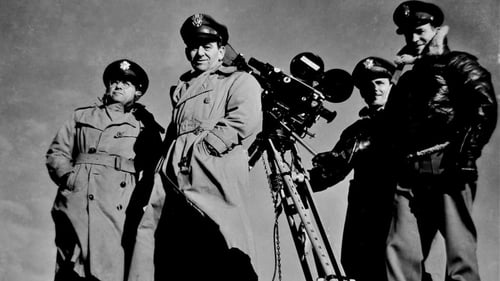
Himself
For the USA, World War 2 was an all-out war - to mobilize the masses, the US government launched a huge propaganda campaign and cinema, the medium of the masses, was quite simply their most important weapon. Government authorities monitored the production of feature films and the military itself produced documentaries aimed at rallying the American people to support the troops. This film tells the story of four Hollywood directors of European origin, who returned to the "Old World" during the Second World War to make propaganda documentaries for the US Army at the front: William Wyler from Alsace, Frank Capra from Italy, Anatole Litvak from Ukraine and - in post-war Germany - Billy Wilder from Austria.

Self
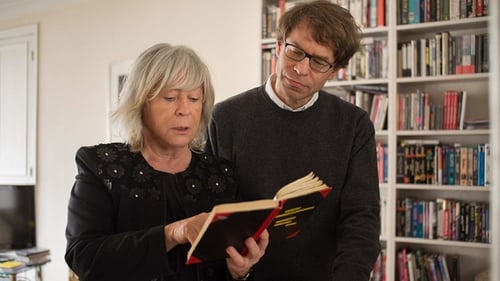
Himself
West Germany in the 1970s. Many artists, journalists and intellectuals were branded as sympathizers of Baader-Meinhof's left-wing terrorism. The parents of the director, too: Margarethe von Trotta and his stepfather, Volker Schlöndorff. With extensive archive materials and film clips as well as Margarethe von Trotta's private diaries the film portrays one German family and the society of the time.
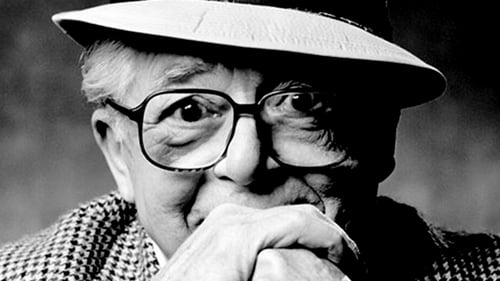
Self
A funny walk through the life story of Billy Wilder (1906-2002), a cinematic genius; a portrait of a filmmaker who never was a boring man, a superb mind who had ten commandments, of which the first nine were: “Thou shalt not bore.”
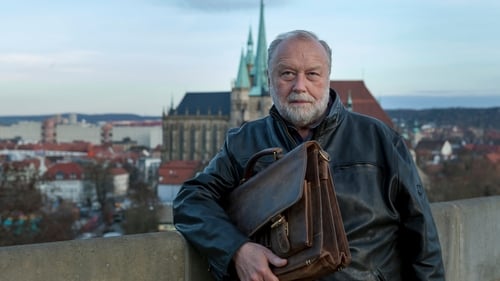
Writer
The retired Chief superintendent Jakob Franck who often had to inform relatives as a "death messenger", now hopes to lead a life beyond the dead.

Director
The retired Chief superintendent Jakob Franck who often had to inform relatives as a "death messenger", now hopes to lead a life beyond the dead.

Screenplay
During a book tour in the United States, Max meets and falls in love with a young woman. Many years later, Max returns to the United States, hoping to reunite with his young lover.

Director
During a book tour in the United States, Max meets and falls in love with a young woman. Many years later, Max returns to the United States, hoping to reunite with his young lover.

Himself
Documentary of German electronic musical group Tangerine Dream.
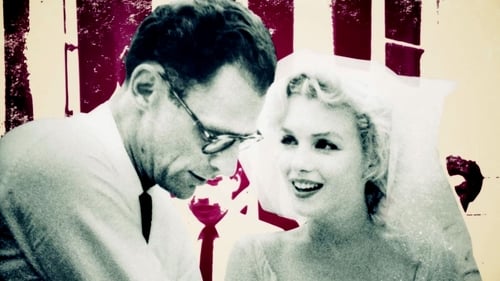
Self - Filmmaker
An unparalleled portrait of Arthur Miller (1915-2005), a major writer who left an indelible mark on the world. Miller's life is intimately connected with the great themes that marked the 20th century. Glamour, fame, social criticism and Marilyn Monroe.

Interviewer
In this feature-length interview, conducted by Robert Fischer in February 2015, Volker Schlöndorff talks about the making of his film BAAL (1969), based on the first play ever written by Bertolt Brecht. He describes his working relationship with Rainer Werner Fassbinder and his group of actors and how the Brecht family hated the film when it first came out, resulting in BAAL’s inavailability for over 40 years.
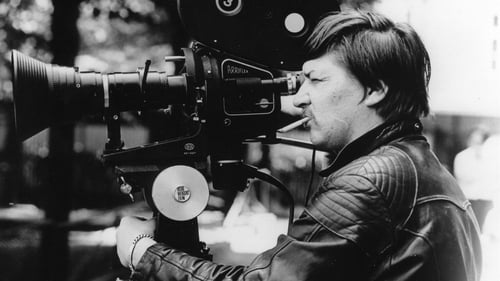
Himself
A film portrait of the influential Bavarian actor, director and screenwriter who publicly confessed
his homosexuality.
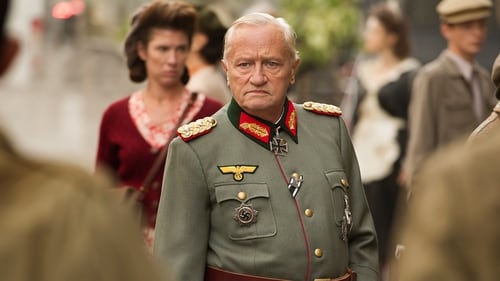
Screenplay
The night of August 24, 1944. The fate of Paris is in the hands of General von Choltitz, governor of Grand Paris, who is preparing, on Hitler’s orders, to blow up the French capital. The descendent of a long line of Prussian military men, the general has never had any hesitation when it came to obeying orders. This is what’s on Swedish consul Raoul Nordling’s mind as he takes the secret staircase that leads to General von Choltitz’s suite at the Hôtel Meurice. The bridges on the Seine and the major monuments of Paris (including the Louvre, Notre Dame, the Eiffel Tower) are mined with explosives, ready to be detonated. Armed with all the weapons of diplomacy, the consul will try to convince the general not to follow Hitler’s order of destruction.

Director
The night of August 24, 1944. The fate of Paris is in the hands of General von Choltitz, governor of Grand Paris, who is preparing, on Hitler’s orders, to blow up the French capital. The descendent of a long line of Prussian military men, the general has never had any hesitation when it came to obeying orders. This is what’s on Swedish consul Raoul Nordling’s mind as he takes the secret staircase that leads to General von Choltitz’s suite at the Hôtel Meurice. The bridges on the Seine and the major monuments of Paris (including the Louvre, Notre Dame, the Eiffel Tower) are mined with explosives, ready to be detonated. Armed with all the weapons of diplomacy, the consul will try to convince the general not to follow Hitler’s order of destruction.

Director
Thirteen filmmakers talk about Henri Langlois and their relationship with him.

Self
Thirteen filmmakers talk about Henri Langlois and their relationship with him.
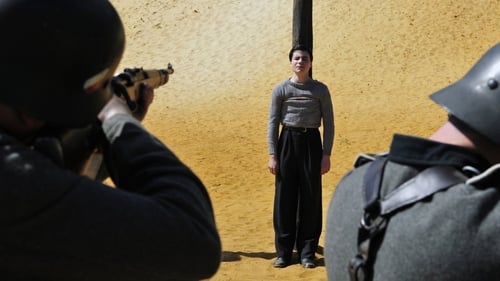
Writer
October 1941. Eighteen months into France’s occupation by German troops, young Communist members of the Resistance shoot dead an officer of the German Army. In retaliation, Hitler demands the deaths of 150 Frenchmen, as 'retribution'. The targets are to be mostly young men believed to share the assassins’ political convictions. Most of these men are taken from an internment camp for opponents of the occupation; a 35-year-old French rural administrator is ordered to select the victims. Although the parish priest appeals to their conscience and moral sensibilities, both the German military and their French helpers slavishly follow their orders.

Director
October 1941. Eighteen months into France’s occupation by German troops, young Communist members of the Resistance shoot dead an officer of the German Army. In retaliation, Hitler demands the deaths of 150 Frenchmen, as 'retribution'. The targets are to be mostly young men believed to share the assassins’ political convictions. Most of these men are taken from an internment camp for opponents of the occupation; a 35-year-old French rural administrator is ordered to select the victims. Although the parish priest appeals to their conscience and moral sensibilities, both the German military and their French helpers slavishly follow their orders.

Self
Gérard Courant's "Filmed Diary" of December 14, 2011, produced in Dubai (United Arab Emirates). Between December 7 and 15, 2011, Gérard Courant was invited by the Dubai International Film Festival, in the United Arab Emirates. It was an opportunity for him to film many "Cinematons" of personalities from the Arab world and to continue his "Film Notebooks" from which he brought back 7 episodes.

Strolling through France (Roanne, Nice and Carcassonne) with some excursions abroad (Munich, Montreal, New York).

Interviewee
A documentary about the making of Jean-Pierre Melville's 1949 film "Le silence de la mer"

Editor
A documentary about the film Last Year at Marienbad

Producer
A documentary about the film Last Year at Marienbad

Himself - Narrator
A documentary about the film Last Year at Marienbad

Self
Interviews with Alain Resnais' collaborators about the making of Last Year at Marienbad, including sketches and production photos.

himself
This documentary explores the creation of the Holocaust Memorial in Berlin as designed by architect Peter Eisenman. Reaction of the German public to the completed memorial is also shown.

Self
In these interviews, conducted in 2008, actor Alexandra Stewart and filmmakers Philippe Collin and Volker Schlöndorff discuss the making of The Fire Within.

Self
Mixing interviews, rare archival footage and film extracts, the film shows how Melville's works were impacted by what he experienced in his youth during WWII, and how it structured his whole approach to cinema, not only in its thematic but also in its aesthetics.
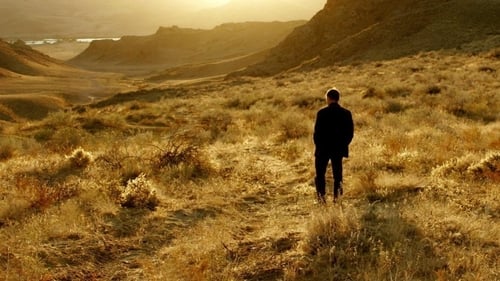
Director
Somewhere in the endless steppes of Central Asia lies a treasure. One man holds the key to it, a fragment of an ancient map. But in his restless quest, Charles isn't looking for fame or glory. He's looking for a way to heal his wounded soul. He's looking for love. Ulzhan felt it the first time she laid eyes on him.

Director
A nearly illiterate woman becomes one of the founders of Poland's Solidarity union.

Self
What is the state of cinema and what being a filmmaker means? What are the measures taken to protect authors' copyright? What is their legal status in different countries? (Sequel to “Filmmakers vs. Tycoons.”)
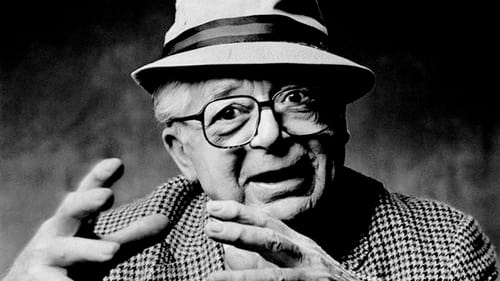
Editor
In 1988, German filmmaker Volker Schlöndorff sat down with legendary director Billy Wilder (1906-2002) at his office in Beverly Hills, California, and turned on his camera for a series of filmed interviews. (A recut of the 1992 TV miniseries Billy, How Did You Do It?)

Self - Filmmaker / Interviewer
In 1988, German filmmaker Volker Schlöndorff sat down with legendary director Billy Wilder (1906-2002) at his office in Beverly Hills, California, and turned on his camera for a series of filmed interviews. (A recut of the 1992 TV miniseries Billy, How Did You Do It?)

Director
In 1988, German filmmaker Volker Schlöndorff sat down with legendary director Billy Wilder (1906-2002) at his office in Beverly Hills, California, and turned on his camera for a series of filmed interviews. (A recut of the 1992 TV miniseries Billy, How Did You Do It?)

Self
A documentary about the life of the actress Hildegard Knef.

Director

Himself

Himself
A documentary by Hans Günther Pflaum and Peter H. Schröder.
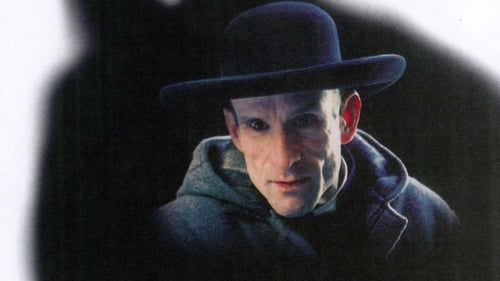
Director
A drama loosely based on Jean Bernard's Nazi-era prison diary.

Self (Interviewee)

Himself
The history of a family, in the film business now for three generations, behind and in front of the camera. The film is not only a foray through the history of this remarkable family, but also through the history of German film and contemporary history as well.

Director
Collection of short films the summaries of which include; a foreign man moving to Italy, getting married and having a child; a four split scene short involving plot-less images of old people with television sets for heads, a beautiful woman having sex, and overall confusion; and an old man reminiscing over his youth.

Self
The films, affairs and struggles of the iconic star of The Blue Angel as told by Rosemary Clooney, Roger Corman, Deanna Durbin and many more.

Producer
Austrian television director Fritz Lehner makes his feature debut with the big-budget drama Jedermann's Fest, based on the 1911 play by Hugo von Hofmannsthal, which in turn was based on a medieval tale. Originated in parts of England, the myth of Jan Jedermann ("John Everyman") deals with a rich man on his deathbed coming to terms with his life's failures. Not following much of a plot, the modernized version involves famous fashion designer Jedermann (Klaus Maria Brandauer) imagining his last big gala event while rendered unconscious as a result of a car accident in his Ferrari. He is a success in Vienna but not in fashionable Paris, so he wishes to impress French elder stateswoman Yvonne Becker (Juliette Greco).

Self
A documentary-montage of sketches, photos, storyboards, and film excerpts that is accompanied by Volker Schlöndorff's thoughts about his 1979 film THE TIN DRUM.
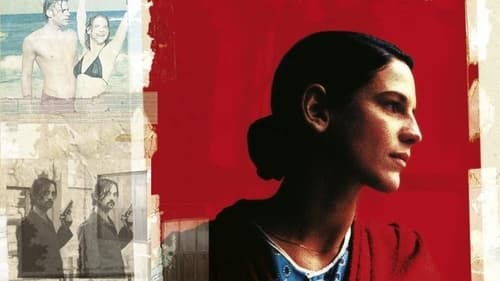
Screenplay
Rita Vogt is a radical West German terrorist who abandons the revolution and settles in East Germany with a new identity provided by the East German secret service. She lives in constant fear of having her cover blown, which unavoidably happens after the German re-unification.

Director
Rita Vogt is a radical West German terrorist who abandons the revolution and settles in East Germany with a new identity provided by the East German secret service. She lives in constant fear of having her cover blown, which unavoidably happens after the German re-unification.
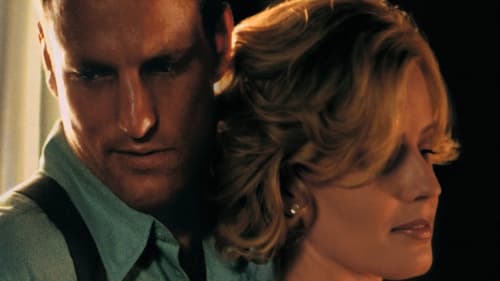
Director
A recently released ex-con gets involved in a fake kidnapping scheme that turns very real.
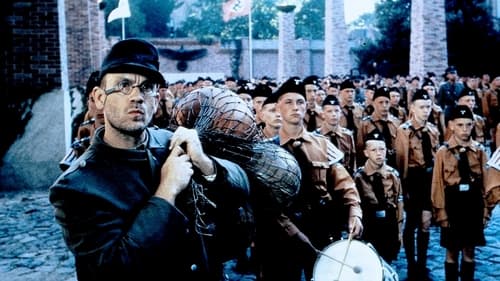
Screenplay
Frenchman Abel Tiffauges is a naive man who lives a simple life working as a mechanic. Falsely accused of being a child abuser, he is recruited as a soldier when World War II begins, but is captured soon and taken to the heart of Nazi Germany.

Director
Frenchman Abel Tiffauges is a naive man who lives a simple life working as a mechanic. Falsely accused of being a child abuser, he is recruited as a soldier when World War II begins, but is captured soon and taken to the heart of Nazi Germany.

Self
A meditation on the first 100 years of German cinema, featuring some of its greatest directors.

Self
A documentary about the life and work of director Rainer Werner Fassbinder.

Director
Ute Lemper sings a collection of art songs by Michael Nyman based on texts by Paul Celan, Wolfgang Amadeus Mozart, William Shakespeare and Arthur Rimbaud. It was filmed at the Musikhalle, Hamburg, 4 February 1992.

Director
An interview between Volker Schlöndorff and Billy Wilder.

Self
An interview between Volker Schlöndorff and Billy Wilder.

Self
Werner Herzog interviews guests on the art of filmmaking.
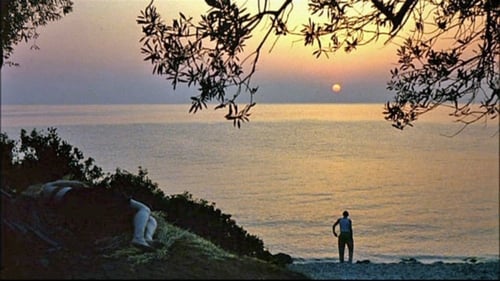
Screenplay
Walter Faber has survived a crash with an airplane. His next trip is by ship. On board this ship he meets the enchanting Sabeth and they have a passionate love affair. Together they travel to her home in Greece, but the rational Faber doesn't know what fate has in mind for him for past doings.

Director
Walter Faber has survived a crash with an airplane. His next trip is by ship. On board this ship he meets the enchanting Sabeth and they have a passionate love affair. Together they travel to her home in Greece, but the rational Faber doesn't know what fate has in mind for him for past doings.
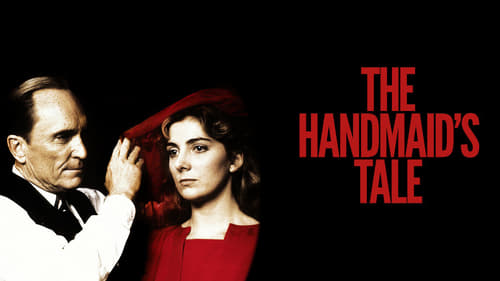
Director
In a dystopicly polluted rightwing religious tyranny, a young woman is put in sexual slavery on account of her now rare fertility.
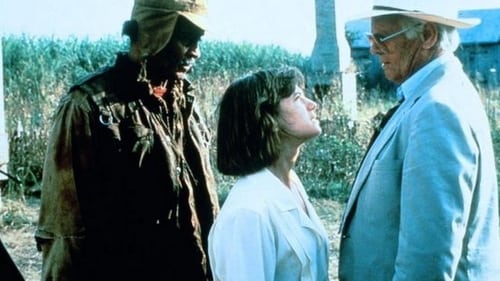
Director
A regular day in a Louisiana sugarcane plantation changes course when a local white farmer is shot in self defense. A group of old, black men takes a courageous step by coming forward en masse to take responsibility for the killing of a white racist, whom one of their members has shot. As the sheriff confronts the suspects, the young plantation owner stands alone in her daring defense of this group of men, provoking racial tension that makes a compelling drama.
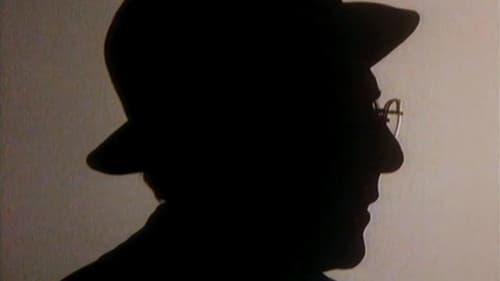
self
Playwright Arthur Miller, director Volker Schlöndorff and actor Dustin Hoffman are seen creating the Roxbury Productions and Punch Productions teleplay Death of a Salesman (1985).

Self
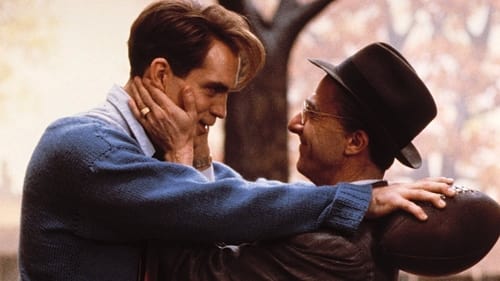
Director
Salesman Willy Loman is in a crisis. He's about to lose his job, he can't pay his bills, and his sons Biff and Happy don't respect him and can't seem to live up to their potential. He wonders what went wrong and how he can make things up to his family.

Director
The beginning of the 20th century. Charles Swann, a young and wealthy dandy, spends most of his time hanging out with the old nobility, notably the Duke and Duchess of Guermantes. He is madly in love with a pretty demi-mondaine, Odette de Crécy. Idle, Swann surrendered complacently to the torments of jealousy. After hours of suffering, he manages to spend a night with Odette. In the morning, he believes that ultimately, this one is "not his type". However, we find him, many years later, alongside Odette who, now his wife, gave him a daughter. In the company of Baron de Charlus, brother of the Duchess of Guermantes, he wonders about the failure of his sentimental life, so far removed from this absolute he dreamed of...

Writer
The third episodical film, after Deutschland im Herbst and Der Kandidat, in which notable German film makers reflect on the state of their country.

Director
The third episodical film, after Deutschland im Herbst and Der Kandidat, in which notable German film makers reflect on the state of their country.
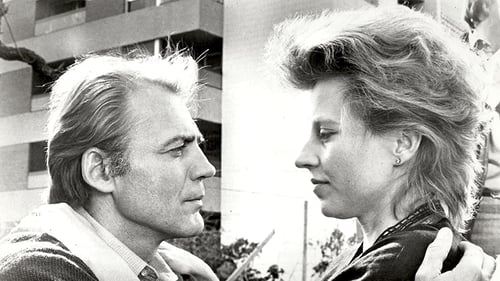
Writer
Georg Laschen leaves his family in West Germany to go work as a war correspondent in Beirut during the fights between Christians and Palestinians.

Director
Georg Laschen leaves his family in West Germany to go work as a war correspondent in Beirut during the fights between Christians and Palestinians.
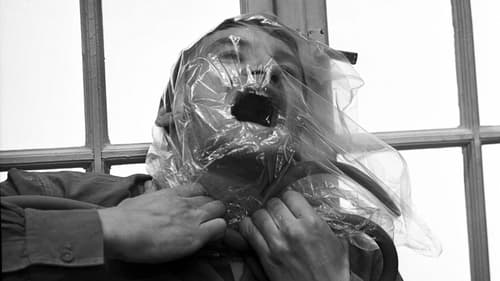
German Film Director
The reunion of a group of former medical students results in a flood of bitter memories.
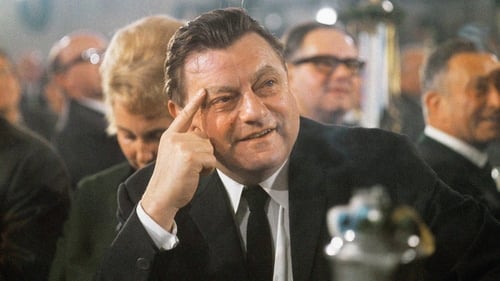
Writer
Made with an eye to the autumn of 1980 when the German parliamentary elections took place, The Candidate examines Germany’s history past and present and Franz Josef Strauß, the man who, as the CDU/CSU candidate, aspires to be elected to the most important political office in the land.

Director
Made with an eye to the autumn of 1980 when the German parliamentary elections took place, The Candidate examines Germany’s history past and present and Franz Josef Strauß, the man who, as the CDU/CSU candidate, aspires to be elected to the most important political office in the land.
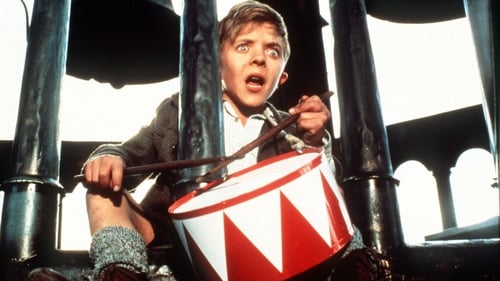
Screenplay
Oskar Matzerath is a very unusual boy. Refusing to leave the womb until promised a tin drum by his mother, Agnes, Oskar is reluctant to enter a world he sees as filled with hypocrisy and injustice, and vows on his third birthday to never grow up. Miraculously, he gets his wish. As the Nazis rise to power in Danzig, Oskar wills himself to remain a child, beating his tin drum incessantly and screaming in protest at the chaos surrounding him.

Director
Oskar Matzerath is a very unusual boy. Refusing to leave the womb until promised a tin drum by his mother, Agnes, Oskar is reluctant to enter a world he sees as filled with hypocrisy and injustice, and vows on his third birthday to never grow up. Miraculously, he gets his wish. As the Nazis rise to power in Danzig, Oskar wills himself to remain a child, beating his tin drum incessantly and screaming in protest at the chaos surrounding him.
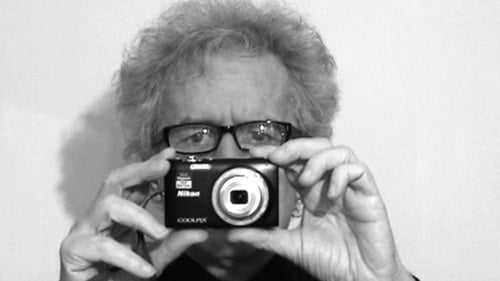
N°572
Cinématon is a 156-hour long experimental film by French director Gérard Courant. It was the longest film ever released until 2011. Composed over 36 years from 1978 until 2006, it consists of a series of over 2,821 silent vignettes (cinématons), each 3 minutes and 25 seconds long, of various celebrities, artists, journalists and friends of the director, each doing whatever they want for the allotted time. Subjects of the film include directors Barbet Schroeder, Nagisa Oshima, Volker Schlöndorff, Ken Loach, Benjamin Cuq, Youssef Chahine, Wim Wenders, Joseph Losey, Jean-Luc Godard, Samuel Fuller and Terry Gilliam, chess grandmaster Joël Lautier, and actors Roberto Benigni, Stéphane Audran, Julie Delpy and Lesley Chatterley. Gilliam is featured eating a 100-franc note, while Fuller smokes a cigar. Courant's favourite subject was a 7-month-old baby. The film was screened in its then-entirety in Avignon in November 2009 and was screened in Redondo Beach, CA on April 9, 2010.
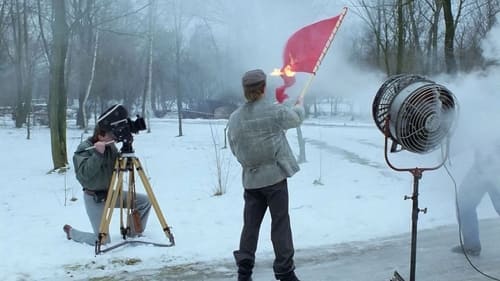
Screenplay
Germany in Autumn does not have a plot per se; it mixes documentary footage, along with standard movie scenes, to give the audience the mood of Germany during the late 1970s. The movie covers the two month time period during 1977 when a businessman was kidnapped, and later murdered, by the left-wing terrorists known as the RAF-Rote Armee Fraktion (Red Army Fraction). The businessman had been kidnapped in an effort to secure the release of the orginal leaders of the RAF, also known as the Baader-Meinhof gang. When the kidnapping effort and a plane hijacking effort failed, the three most prominent leaders of the RAF, Andreas Baader, Gudrun Ensslin, and Jan-Carl Raspe, all committed suicide in prison. It has become an article of faith within the left-wing community that these three were actually murdered by the state.

Director
Germany in Autumn does not have a plot per se; it mixes documentary footage, along with standard movie scenes, to give the audience the mood of Germany during the late 1970s. The movie covers the two month time period during 1977 when a businessman was kidnapped, and later murdered, by the left-wing terrorists known as the RAF-Rote Armee Fraktion (Red Army Fraction). The businessman had been kidnapped in an effort to secure the release of the orginal leaders of the RAF, also known as the Baader-Meinhof gang. When the kidnapping effort and a plane hijacking effort failed, the three most prominent leaders of the RAF, Andreas Baader, Gudrun Ensslin, and Jan-Carl Raspe, all committed suicide in prison. It has become an article of faith within the left-wing community that these three were actually murdered by the state.

Associate Producer

Documentary film.

Writer
Documentary film.

Director
Documentary film.

Self
BBC documentary about the rise of the New German Cinema and several of its most important figures.

Director
A countess loves her brother's Prussian-officer friend in the 1919 Baltic area.

Writer
Adaptation of a story by Henry James.

Director
Adaptation of a story by Henry James.
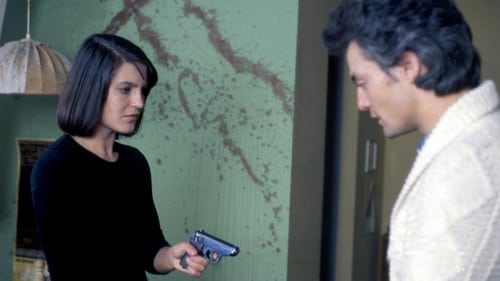
Screenplay
After a chance encounter with a wanted man, a woman is harassed by the police and press until she takes violent action.

Director
After a chance encounter with a wanted man, a woman is harassed by the police and press until she takes violent action.

Producer
Television film.

Writer
Television film.

Director
Television film.
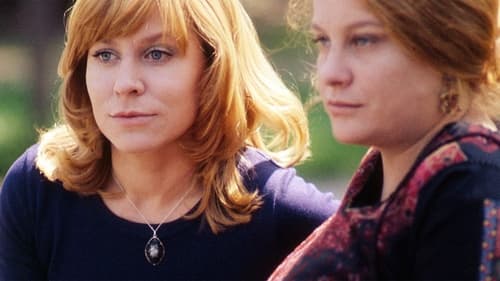
Producer
A divorced woman in her thirties fights a losing battle in Munich to attain belated self-fulfillment. The die is cast in a briskly impersonal society geared to male dominance and early training for career women.

Writer
A divorced woman in her thirties fights a losing battle in Munich to attain belated self-fulfillment. The die is cast in a briskly impersonal society geared to male dominance and early training for career women.

Director
A divorced woman in her thirties fights a losing battle in Munich to attain belated self-fulfillment. The die is cast in a briskly impersonal society geared to male dominance and early training for career women.

Screenplay

Director

Inspired by the real life events of Mathias Kneißl, a marginal man, son of poor farmers from Bavaria, in the late XIX Century. Mathias stole from the riches to give to the poor, becoming a hero for the rural people, and a popular social rebel. He was chased by the police until his unfortunate sentence.

Producer
An intriguing Hans Christian Anderson-style fairy tale aesthetic and voice over narration. Sudden Wealth is a despairing chronicle of a group of starving peasants who finally seize governmental wealth like a dysfunctional group of Robin Hood's Merry Men, only to be betrayed by their inescapable selves and systematically dehumanized (think bucolic Orwell) and reprogrammed by what we'll put under the rubric of God and Country.

Writer
An intriguing Hans Christian Anderson-style fairy tale aesthetic and voice over narration. Sudden Wealth is a despairing chronicle of a group of starving peasants who finally seize governmental wealth like a dysfunctional group of Robin Hood's Merry Men, only to be betrayed by their inescapable selves and systematically dehumanized (think bucolic Orwell) and reprogrammed by what we'll put under the rubric of God and Country.

Director
An intriguing Hans Christian Anderson-style fairy tale aesthetic and voice over narration. Sudden Wealth is a despairing chronicle of a group of starving peasants who finally seize governmental wealth like a dysfunctional group of Robin Hood's Merry Men, only to be betrayed by their inescapable selves and systematically dehumanized (think bucolic Orwell) and reprogrammed by what we'll put under the rubric of God and Country.
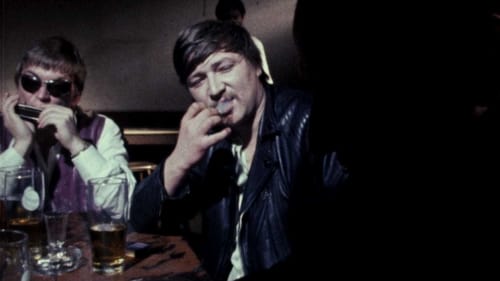
Screenplay
Volker Schlöndorff transposes Bertolt Brecht’s late-expressionist work to latter-day 1969. Poet and anarchist Baal lives in an attic and reads his poems to cab drivers. At first feted and later rejected by bourgeois society, Baal roams through forests and along motorways, greedy for schnapps, cigarettes, women and men: ‘You have to let out the beast, let him out into the sunlight.’ After impregnating a young actress he soon comes to regard her as a millstone round his neck. He stabs a friend to death and dies alone. ‘You are useless, mangy and wild, you beast, you crawl through the lowest boughs of the tree.’

Producer
Volker Schlöndorff transposes Bertolt Brecht’s late-expressionist work to latter-day 1969. Poet and anarchist Baal lives in an attic and reads his poems to cab drivers. At first feted and later rejected by bourgeois society, Baal roams through forests and along motorways, greedy for schnapps, cigarettes, women and men: ‘You have to let out the beast, let him out into the sunlight.’ After impregnating a young actress he soon comes to regard her as a millstone round his neck. He stabs a friend to death and dies alone. ‘You are useless, mangy and wild, you beast, you crawl through the lowest boughs of the tree.’

Director
Volker Schlöndorff transposes Bertolt Brecht’s late-expressionist work to latter-day 1969. Poet and anarchist Baal lives in an attic and reads his poems to cab drivers. At first feted and later rejected by bourgeois society, Baal roams through forests and along motorways, greedy for schnapps, cigarettes, women and men: ‘You have to let out the beast, let him out into the sunlight.’ After impregnating a young actress he soon comes to regard her as a millstone round his neck. He stabs a friend to death and dies alone. ‘You are useless, mangy and wild, you beast, you crawl through the lowest boughs of the tree.’

Writer
It's medieval times. Kohlhaas merchants with horses. When going to the local fair to sell his horses, is forced by a noble to leave him part of the merchandise as payment for traveling through his land, promising to give it back when the fair is over. When he returns, the horses are almost dead, and the man refuse to respond, so Kohlhass begins to fight unsuccesfuly against the injustice.

Director
It's medieval times. Kohlhaas merchants with horses. When going to the local fair to sell his horses, is forced by a noble to leave him part of the merchandise as payment for traveling through his land, promising to give it back when the fair is over. When he returns, the horses are almost dead, and the man refuse to respond, so Kohlhass begins to fight unsuccesfuly against the injustice.

Writer
Five film directors were given the task of making short films based on titles of drawings by Paul Klee.

Director
Five film directors were given the task of making short films based on titles of drawings by Paul Klee.
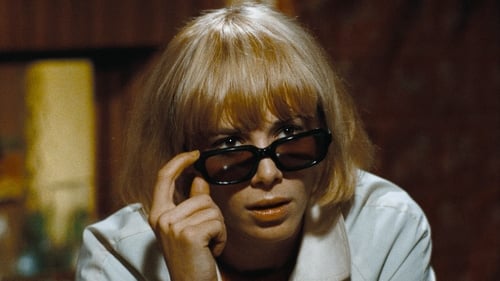
Writer
When a young woman accidentally kills her ex-lover during a fight, she decides to conceal the body. Unfortunately, however, our anti-hero is less than honorable and becomes involved with not one but both of the men she finds to help her with his disposal at a construction site. And that's just one of the problems this little case of murder and deception starts.

Director
When a young woman accidentally kills her ex-lover during a fight, she decides to conceal the body. Unfortunately, however, our anti-hero is less than honorable and becomes involved with not one but both of the men she finds to help her with his disposal at a construction site. And that's just one of the problems this little case of murder and deception starts.

Interview film with the protagonists of the New German Cinema in 1966.
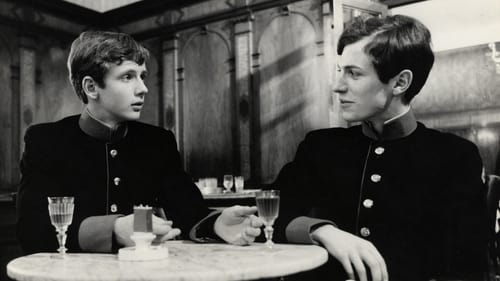
Director
At an Austrian boys' boarding school in the early 1900s, shy, intelligent Törless observes the sadistic behavior of his fellow students, doing nothing to help a victimized classmate—until the torture goes too far. Adapted from Robert Musil's acclaimed novel, Young Törless launched the New German Cinema movement and garnered the 1966 Cannes Film Festival International Critics' Prize for first-time director Volker Schlöndorff.

Writer
At an Austrian boys' boarding school in the early 1900s, shy, intelligent Törless observes the sadistic behavior of his fellow students, doing nothing to help a victimized classmate—until the torture goes too far. Adapted from Robert Musil's acclaimed novel, Young Törless launched the New German Cinema movement and garnered the 1966 Cannes Film Festival International Critics' Prize for first-time director Volker Schlöndorff.
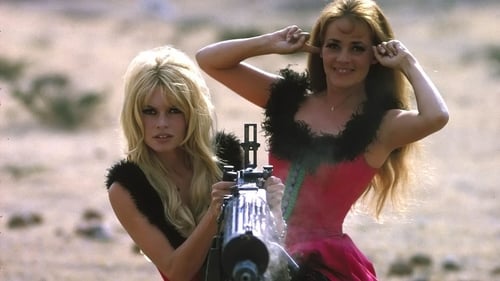
Assistant Director
Gorgeous IRA operative Marie flees the British authorities and finds herself somewhere in the American continent, where she meets a stunning woman also named Marie, a singer in a traveling circus. The new friends start a vaudeville act that grows exponentially more popular after they incorporate striptease into their routine. When the singer Maria falls for a charismatic rebel, the girls leave the circus behind and recreate themselves as wild-eyed revolutionaries.
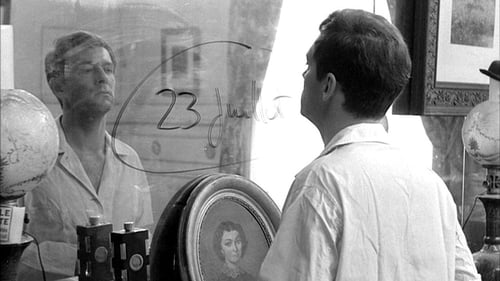
Assistant Director
Although his alcoholism has been treated, Alain still feels he is deeply unwell and does not feel he can leave the detoxification clinic once and for all. His wife, living in New York, continues to pay for his treatment, but no longer contacts him directly. He intends to commit suicide, but first takes a ride to Paris to catch up with old friends.
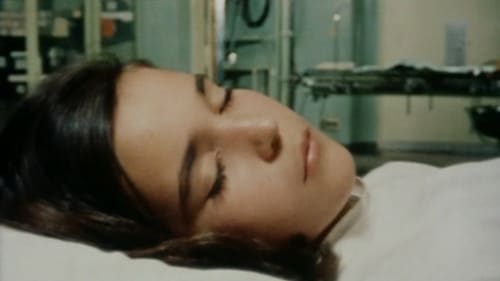
Assistant Director
Pollet and Schlöndorff imagine the Mediterranean as a supernal arena.
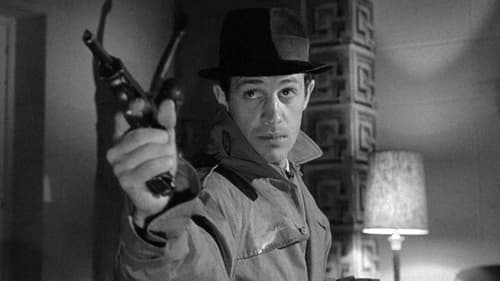
Assistant Director
Enigmatic gangster Silien may or may not be responsible for informing on Faugel, who was just released from prison and is already involved in what should be a simple heist. By the end of this brutal, twisting, and multilayered policier, who will be left to trust?
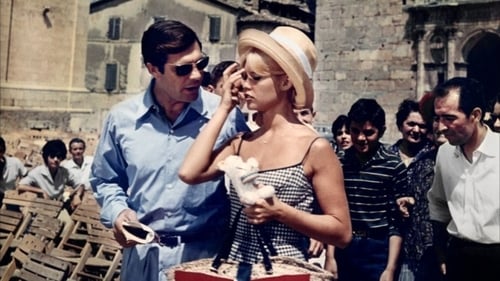
Assistant Director
When Jill becomes a movie star, she soon discovers that her private life is destroyed by persistent fans that won't leave her alone. Her mother's ex-lover, Fabio, tries to protect her.
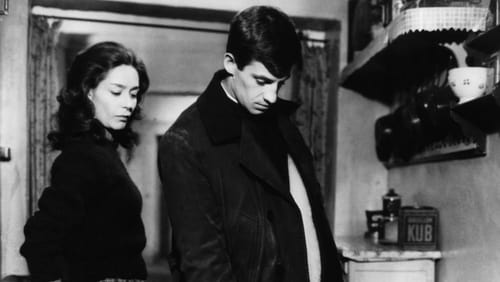
Un soldat allemand (uncredited)
In World War II, the widow Barny sees the Italian soldiers arriving in occupied Saint Bernard while walking to her job. Barny lives with her daughter and works correcting tests and feels a great attraction toward her boss Sabine. When the Germans arrive, Barny sends her half-Jewish daughter to live on a farm in the countryside and finds that Sabine's brother has been arrested and sent to a concentration camp. The atheist Barny decides to baptize her daughter to protect her and chooses priest Léon Morin to discuss with him themes related to religion and Catholicism and Léon lends books to her. Barny converts to Catholicism and becomes closer to Léon, feeling an unrequited desire for him.

Assistant Director
In World War II, the widow Barny sees the Italian soldiers arriving in occupied Saint Bernard while walking to her job. Barny lives with her daughter and works correcting tests and feels a great attraction toward her boss Sabine. When the Germans arrive, Barny sends her half-Jewish daughter to live on a farm in the countryside and finds that Sabine's brother has been arrested and sent to a concentration camp. The atheist Barny decides to baptize her daughter to protect her and chooses priest Léon Morin to discuss with him themes related to religion and Catholicism and Léon lends books to her. Barny converts to Catholicism and becomes closer to Léon, feeling an unrequited desire for him.
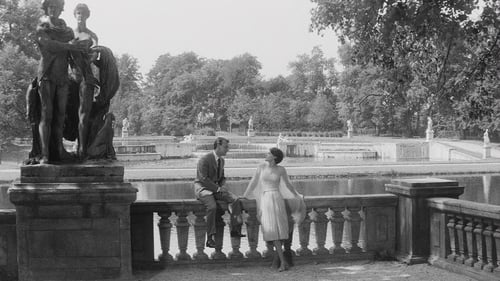
Second Assistant Director
In a strange and isolated chateau, a man becomes acquainted with a woman and insists that they have met before.

Editor
In the Frankfurt area, "La Main Rouge" hunted for Algerian soldiers who had deserted from the French army and fled across the German border.

Writer
In the Frankfurt area, "La Main Rouge" hunted for Algerian soldiers who had deserted from the French army and fled across the German border.

Director
In the Frankfurt area, "La Main Rouge" hunted for Algerian soldiers who had deserted from the French army and fled across the German border.
